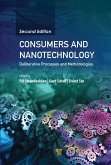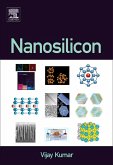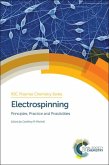This book presents findings from EU (and other) projects on the theme of science in society, focusing on nanotechnology and the potential for democratisation of science. It is based on hands-on studies of a set of deliberative processes analysed by the European Commission's FP7 NANOPLAT project. With added material in the second edition, the book gives a unique insight into the development of deliberative processes on nanotechnology from the start in June 2004 in Denmark up to the present. The analysis is based on an observation of 'generations' of deliberations and it develops the third-generation deliberation, first theoretically and then gets to test it out empirically under the NanoDiode project. In addition, it presents a version of Callon's 'hybrid forum', called HF 2.0, and compares this approach to the deliberations. In light of the RRI approaches, the new concluding chapter considers the potential for a more democratic science through public engagement.
Dieser Download kann aus rechtlichen Gründen nur mit Rechnungsadresse in A, B, BG, CY, CZ, D, DK, EW, E, FIN, F, GR, HR, H, IRL, I, LT, L, LR, M, NL, PL, P, R, S, SLO, SK ausgeliefert werden.









